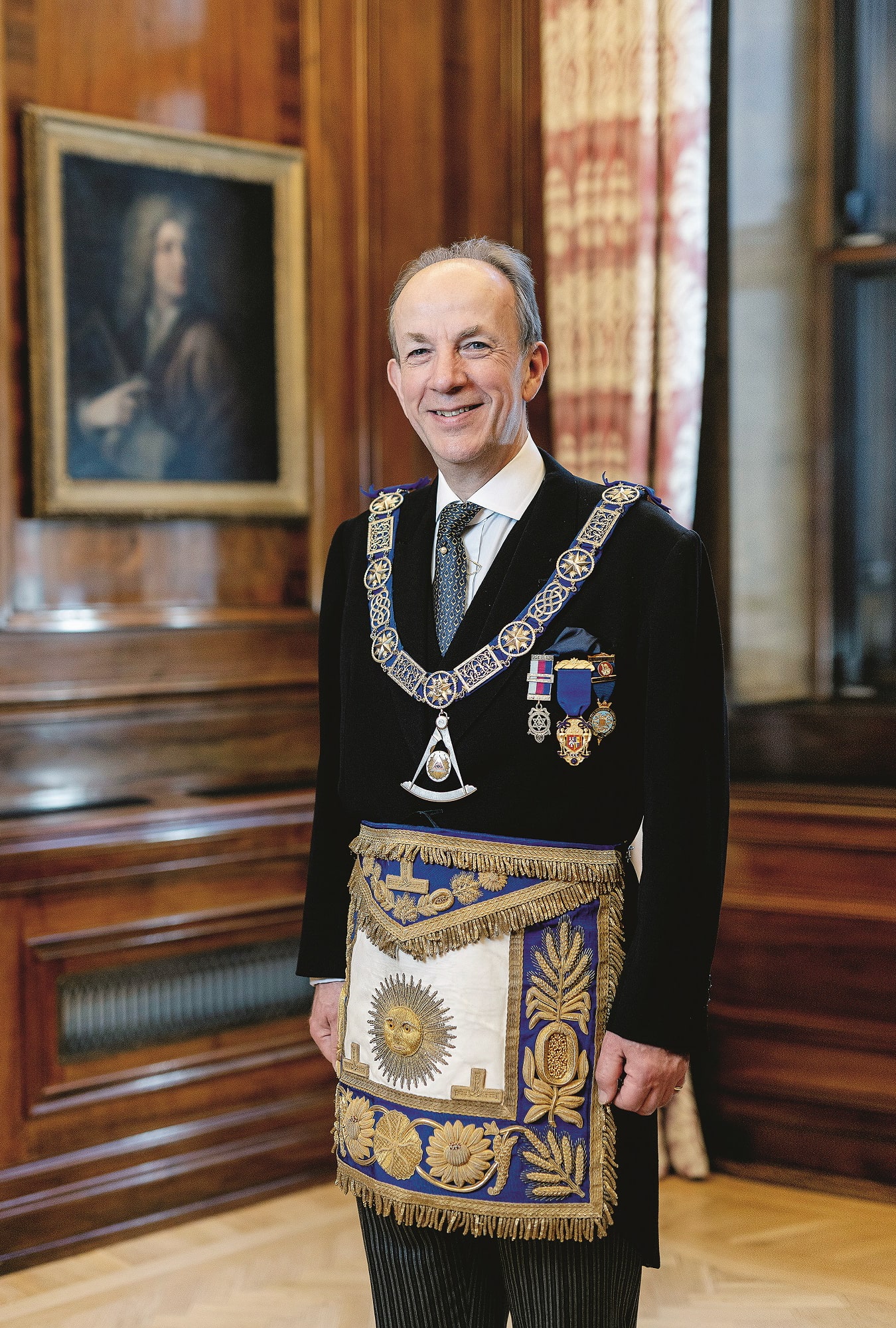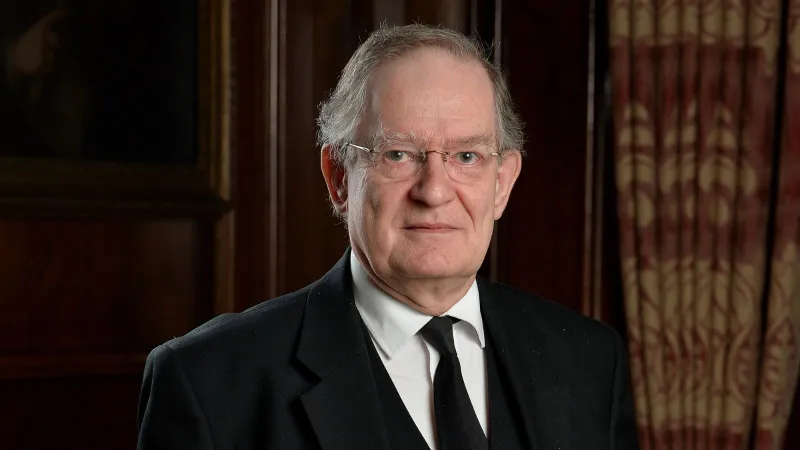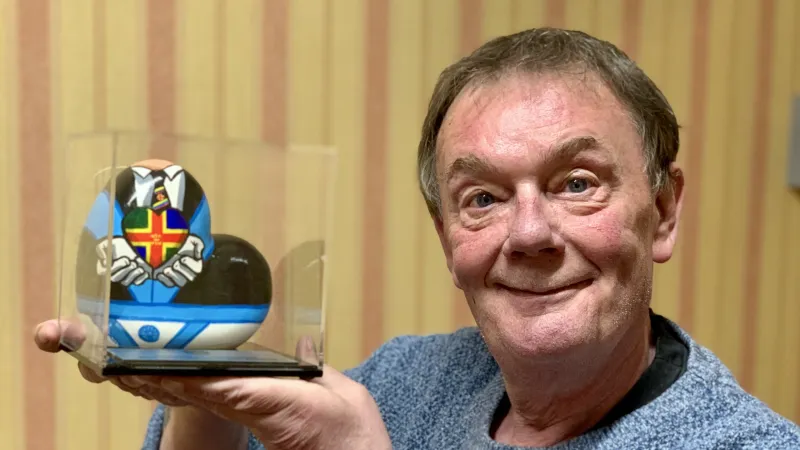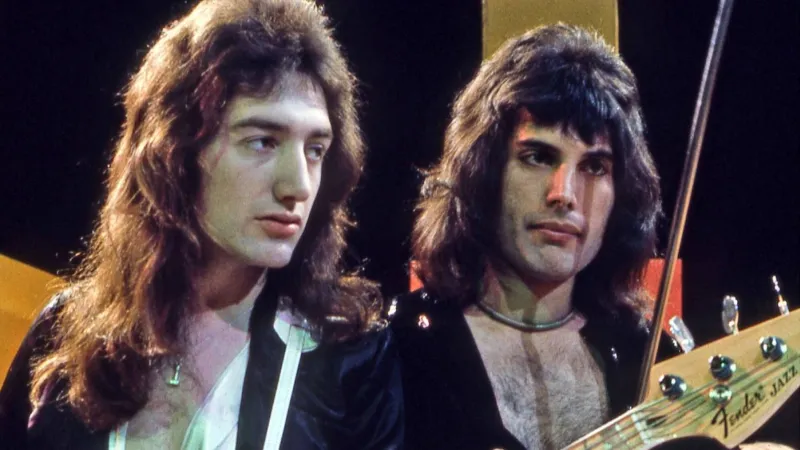Brethren, it is very good to see you all here in the Grand Temple today and I hope you have had a good summer, recharging your batteries ready for the Autumn and the Masonic season to come.

It does not seem possible that a year has passed since the Quarterly Communication was held in Monmouthshire. A day those who were lucky enough to be able to attend will remember for some time to come. One of the objectives of the Strategy for Freemasonry is making both Grand Lodge and Grand Chapter accessible to as many members as possible, and especially Master Masons who are of course our future life blood. To this end I am pleased to announce that further Quarterly Communications in September will be held away from London. The intention is to do this next in September of 2026 and a small working party will commence work shortly to identify and recommend possible venues.
Today’s meeting is open to all Master Masons, not just those who are Wardens of their Lodge, and this will be a consistent feature of both the March and September meetings going forward. Judging by the numbers attending from various Provinces, it is encouraging to see this initiative is being so actively supported and welcomed by you and I am pleased to see such a response. I know that, with enough notice, booking travel is both easier and cheaper for those who are travelling long distances to attend. You have heard me say before Brethren, and it is something which I believe in strongly, it is essential Grand Lodge and Grand Chapter should not only say what they will do but be seen by you, our members, to do it and to do it enthusiastically. Such an approach will encourage you all to do what needs to be done in your Lodges and Chapters, with enthusiasm, involving as many of the members as possible, so Freemasonry in this country will thrive.
At the June Quarterly Communication I announced a ground breaking joint statement was being issued later that day by both the Women’s Orders of Freemasonry and the United Grand Lodge of England confirming the continued co-operation and co-ordination on matters of common interest but emphasising neither we nor they wished this to extend to our work within our Lodges.
In early July, building on this statement, the Council for Freemasonry for England and Wales was formed and held its first meeting. This gives all three orders a more formal mechanism to ensure the cooperation and alignment that has been established over many years will be enhanced, made more effective, and enable Freemasonry in England and Wales, for both women and men, to present a united front to the outside world and will undoubtedly attract new members for all three orders as we reflect what Freemasonry really is and, as importantly, what it is not.
I am sure I do not need to repeat what has already been said, but I will for absolute clarity for all our members, this development does not and will not mean that our Lodges will merge or do joint working, quite the contrary.
Brethren, you have often heard me speak of the importance of the fundamental and shared ideals of liberty, tolerance, a meritocratic society and constitutional government which underpin Freemasonry, which remarkably came to prominence during the 18th Century, a time of uncertainty, strife, turmoil and numerous wars, so much for progress Brethren! In our own time, there are clear tensions within societies throughout the world, economic and social challenges, as well as geopolitical conflicts and wars. These ideals remain as relevant today, if not more so than they were in the 18th Century, although they are under constant attack from some.
Events in this country over the summer emphasise the need for us to be firm in demonstrating our values of Integrity, Respect, Friendship and Service, in what we do as individual Freemasons, as well as collectively as members of our Lodges or Chapters, when engaging in service in our own communities. It is essential we display our values by our actions all the time so we demonstrate the contribution of Freemasons and Freemasonry to the society in which we live and of which we are an integral part, as evidenced by the vast majority of Provinces having entered into the Armed Forces covenant of which we heard earlier from RW Bro John Thompson.
I am often asked how do we demonstrate those values practically? We will all have our own ways of doing so, but for me, drawing on the lessons contained within our ceremonies, I believe to demonstrate our values we should endeavour always to do the right thing, even in difficult circumstances. This is particularly so when it is neither convenient nor expedient for us to do so. We may not always succeed in achieving this, as we are all human, but it is what I aspire to follow.
There are few organisations in this country which can draw their membership without being concerned as to an individual’s religion, race, sexuality, whether they are living with disabilities, either visible or unseen, or socioeconomic status. It is one of the great strengths of Freemasonry and we should all be proud that that has been and will remain the case, as well as avoiding all discussions of religion and politics.
As we head into the Autumn, the work of the Working Party headed by RW Bro Sir David Wootton on the Community Engagement pillar of the Strategy is proceeding at pace. The Working Party is charged to consider all options, and to regard nothing as “off limits”, as we seek the best approach for our Community Engagement in today’s world as an integral part of the Strategy for Freemasonry. Later today the Working Party will meet with Provincial representatives responsible for community engagement to provide feedback to the review. This “Third Pillar Review” has added importance in the light of the recent disturbances over the summer, as it is essential this Constitution ensures it is really effective in demonstrating the positive value of Freemasonry in our communities.
I will end Brethren, and I make no apology for doing this, by again quoting the words of Frederick II or the Great, of Prussia, an 18th Century Freemason, on Freemasonry. The King said his support of the Craft came from its objectives being, “ the intellectual elevation of men as members of society and making them more virtuous and more charitable”. In this century, perhaps we should substitute “more willing to serve” for “more charitable”, I leave the thought with you, Brethren.
Thank you. `


